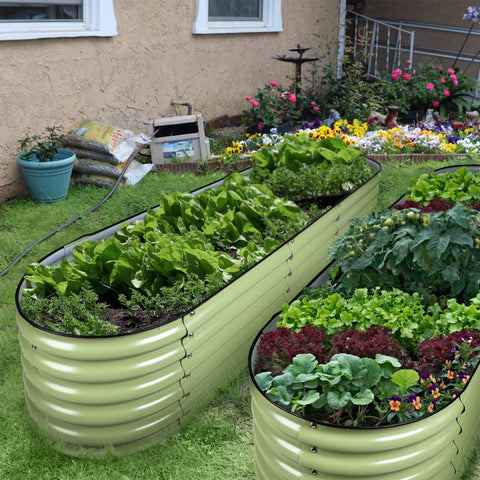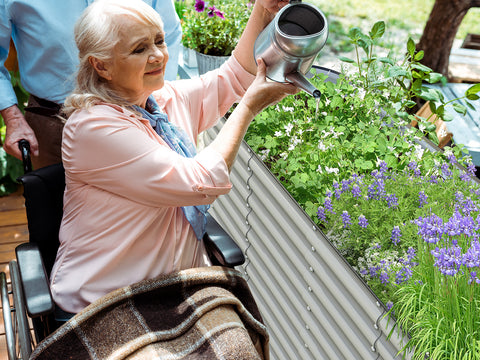Knowledge from Olle Garden Bed: The Increasing Challenges of Gardening with Age
Gardening is a popular hobby enjoyed by people of all ages. However, as individuals grow older, they often encounter various challenges that make gardening more difficult. This article explores the reasons why gardening becomes increasingly challenging with age and suggests possible solutions to overcome these obstacles. The following content also has some reference value for raised garden beds.
Physical Limitations:
One of the primary reasons gardening becomes more difficult with age is the natural decline in physical strength and agility. Tasks such as digging, lifting heavy pots, bending, and kneeling can strain aging bodies, leading to fatigue and potential injuries. Joint stiffness, reduced flexibility, and diminished balance further contribute to the physical limitations faced by older gardeners.
Solution: Older gardeners can adapt their gardening techniques by using ergonomic tools with extended handles, raised garden beds or containers to minimize bending, and installing support structures for climbing plants. Engaging in regular exercise and stretching routines can also help maintain physical fitness and prevent muscle stiffness.
Decreased Stamina:
Aging individuals often experience a decline in stamina, making it challenging to engage in prolonged gardening activities. Tasks that once could be completed in a single session may now require multiple breaks or extended periods of rest.
Solution: Breaking gardening tasks into smaller, manageable segments and scheduling regular rest periods can help conserve energy. Prioritizing essential tasks and seeking assistance from family members, friends, or hired professionals for more demanding projects can also alleviate the burden.
Sensory Changes:
As individuals age, their sensory abilities may diminish, affecting their gardening experience. Declining vision can make it difficult to identify pests, distinguish between weeds and desirable plants, or read small labels. Reduced sense of smell and taste may hinder the ability to detect soil conditions or identify ripe produce.
Solution: Utilizing larger plant labels with bold fonts, employing contrasting colors in the garden design, and opting for plants with distinct scents can help compensate for visual and olfactory challenges. Regularly inspecting plants for signs of pests or diseases and seeking advice from local gardening communities can provide valuable guidance.
Knowledge and Memory:
Gardening requires a certain level of knowledge and expertise, including understanding plant care, seasonal requirements, and pest management. With age, cognitive functions, including memory, may decline, making it harder to retain and recall gardening information.
Solution: Maintaining a gardening journal with notes on plant varieties, care instructions, and observations can serve as a helpful reference tool. Attending gardening workshops, joining local gardening clubs, or seeking advice from experienced gardeners can provide ongoing learning opportunities.
While the joy of gardening does not diminish with age, it is essential for older gardeners to recognize and adapt to the challenges they may face. By making adjustments, seeking assistance, and employing smart strategies, such as using appropriate tools and techniques, older individuals can continue to enjoy the benefits of gardening while maintaining their physical well-being and nurturing beautiful outdoor spaces. Remember, age may bring challenges, but with creativity and resilience, the love for gardening can thrive at any stage of life.


